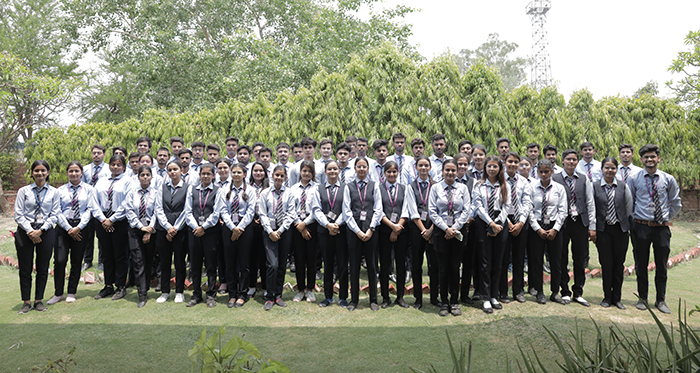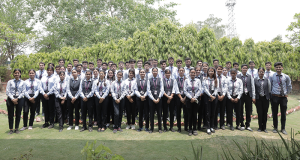Exploring campus life can greatly impact engineering students’ growth and success. As more students join engineering programs, universities see the importance of campus life. This includes student groups, living arrangements, academic help, and partnerships with industries.
This article looks at how campus life affects engineering students’ paths. It shows how different experiences on campus can shape their future.
Combining experiential learning, like internships, co-ops, and hands-on projects, is essential. It prepares engineering students with the skills, experience, and confidence needed for their future in engineering design and career preparation.
Engineering students benefit from faculty advisors and peer mentors. They gain confidence, build connections, and access resources for success.
Through industry partnerships, engineering programs prepare students for today’s engineering world. They help students contribute to the industry’s growth and innovation.
Key Takeaways
- Campus life factors, such as student organizations and residential experiences, can significantly impact engineering students’ growth and academic success.
- Effective academic support services, mentorship programs, and industry partnerships are crucial in empowering engineering students to thrive.
- Embracing diversity and inclusion within engineering curricula and campus climate can foster a more inclusive and supportive environment for students.
- Addressing challenges like microaggressions and financial constraints can be instrumental in improving engineering students’ overall well-being and success.
- Holistic approaches that integrate student-level and school-level factors are necessary to enhance the educational experiences of engineering students.
Influence of Student-level Factors
Student-level factors greatly affect engineering students’ success and growth. These include demographics, communication skills, and how they manage conflicts. Understanding these can help educators and institutions support students better.Demographic Characteristics
Demographic factors like gender, race, and family background matter a lot. Female, racial minority, and first-generation students often face unique challenges. For example, first-generation students might feel left out because they lack the social and economic support others have.Communication Competence
Good communication skills are key for engineering students. They need to talk well with teachers and peers in class, when asking questions, and on team projects. Research shows that these skills are vital in STEM fields, making them a priority in engineering education.Conflict Management Styles
Teamwork is essential for engineers, but conflicts can arise. How students manage these conflicts affects team success. Research shows that working together to solve problems leads to better team outcomes. This is important for engineering students as they work in teams. By focusing on these factors, engineering programs can become more welcoming and supportive. This helps all students succeed and reach their goals.Importance of Experiential Learning
Experiential learning is key for engineering students to grow and succeed. It includes hands-on experiences like internships and co-ops. These let students use what they learn in class to solve real problems, gaining practical skills and exploring careers.Internships and Co-ops
Internships can change engineering students’ lives. Over half of SHEAT College’s Class of 2024 got job offers from their internships. This shows how important these experiences are for career readiness. Internships and co-ops let students dive into engineering, testing their skills and interests.Hands-on Projects
Hands-on projects are also vital for engineering students. These projects, like designing prototypes, help students solve problems, think critically, and work together. They make classroom learning more meaningful, helping students understand engineering better.| Experiential Learning Opportunity | Key Benefits |
|---|---|
| Internships |
|
| Hands-on Projects |
|
“Experiential learning opportunities, such as internships and hands-on projects, are the bridge between classroom theory and real-world practice for engineering students.”
Campus Life
Campus life is key to engineering students’ growth and success. It includes joining student organizations and living in on-campus housing. These experiences greatly shape a student’s journey.Student Organizations: Unlocking Opportunities
Engineering students find great value in joining clubs and societies. These groups offer chances to develop leadership skills and work on projects. They also help students meet others with similar interests. Being part of these communities opens doors to personal and professional growth. It’s a chance to explore new paths and learn from peers.Residential Life: A Transformative Experience
Living in on-campus housing is a transformative experience for engineering students. It allows them to build strong connections with their peers. They can also explore different viewpoints and engage with the campus community. This sense of community is crucial for a well-rounded education. It supports engineering students in achieving their goals. Campus life, with its student organizations and residential experiences, is vital. It empowers engineering students to excel both academically and personally.“Participating in student organizations has been a game-changer for my engineering journey. The hands-on projects, leadership opportunities, and connections I’ve made have truly complemented my classroom learning.”– Sheetal, SHEAT Engineering College Student
Role of Academic Support Services
Engineering students face tough challenges in their studies. They deal with hard coursework, complex problems, and hands-on projects. But, with the right help, they can do well. Academic resources, tutoring, and advising are key to their success. Good academic support helps students build a strong base. It teaches them how to study better and understand their courses. They get help from peers and advisors, who offer valuable advice. Engineering students also get help with managing their time and stress. Workshops and seminars teach them how to handle their busy schedules. This support helps them do well in school and in life. It’s important for engineering schools to invest in academic resources, tutoring, and advising. This helps create a supportive environment. It prepares students to become future leaders in engineering.“Effective academic support services are essential for ensuring that all engineering students, regardless of their background, have the resources they need to succeed.”
- Peer-to-peer tutoring
- Faculty advising
- Workshops on time management and stress management
| Academic Support Service | Key Benefits |
|---|---|
| Tutoring | Strengthens foundational knowledge and problem-solving skills |
| Advising | Provides guidance on course selection, career planning, and overall academic success |
| Academic Resources | Offers workshops, seminars, and other support services to promote student well-being and holistic development |
Impact of Diversity and Inclusion
Diversity and inclusion are key to the success of engineering students. The field has long been mostly white males. Adding diverse views in engineering classes is vital for a welcoming learning space.Representation in Engineering Curricula
Highlighting the work of underrepresented groups in engineering helps students see the field’s full picture. It celebrates minority engineers’ achievements. It also prepares students for the diverse challenges they’ll face in their careers.Inclusive Campus Climate
The campus atmosphere also plays a big role in how students feel. Focusing on inclusivity rather than just avoiding certain groups can make a difference. An inclusive campus supports all students, helping them succeed and feel like they belong.“Diversity and inclusion are not just buzzwords, but essential elements in the pursuit of excellence and innovation in engineering. By embracing these principles, we can create a more vibrant, dynamic, and representative field that serves the needs of all communities.”
Challenges and Barriers
Engineering students, especially those from underrepresented groups, face big challenges. Two major issues are microaggressions and financial problems.Microaggressions: A Subtle Yet Damaging Barrier
Microaggressions are small but harmful biases. They can hurt students’ mental health and grades. Studies link microaggressions to more drinking and anxiety in minority engineering students. It’s key to tackle these microaggressions. We need training for both students and teachers. This will help make the learning space more welcoming and inclusive.Financial Constraints: A Barrier to Equity and Inclusion
Tuition, books, and other school costs can be overwhelming. This is especially true for first-time and low-income students. These financial barriers stop students from fully joining campus life and studying well. It’s vital to tackle these financial barriers. Doing so helps ensure all engineering students have a fair chance to succeed.“Microaggressions and financial constraints are two of the most significant barriers that engineering students from underrepresented backgrounds face. Addressing these challenges is crucial for creating a more equitable and inclusive education system.”
Mentorship and Guidance
Mentorship and guidance are key for engineering students’ growth and success. Faculty advisors and peer mentoring offer great support. They help students face academic and professional challenges.Faculty Advisors: Academic and Career Guidance
Faculty advisors are crucial for engineering students. They guide on academic and career matters. Professors share insights, help plan academic paths, and connect students to opportunities. They act as role models and mentors. This helps students succeed and feel supported.Peer Mentoring: Building a Supportive Community
Peer mentoring programs connect students through upperclassmen mentoring underclassmen. These relationships offer practical advice and emotional support. They help students feel part of a community. Peer mentoring is especially helpful for students from underrepresented groups. It helps them feel connected and access resources.| Mentorship Type | Key Benefits |
|---|---|
| Faculty Advisors |
|
| Peer Mentoring |
|
Engineering Student Identity Development
Building a strong engineering student identity is key for success in school and future careers. It’s about feeling self-efficacy, belonging, and pride in being an engineer. Things like diverse curriculum, welcoming campus, and mentorship help shape this identity. Engineering programs can prepare students for field challenges by focusing on identity development. This makes students ready to be skilled, socially aware, and inclusive professionals. It also makes the engineering field stronger by adding diversity and inclusivity. Professional identity is a big part of being an engineering student. It’s about seeing oneself as an engineer-in-training and being committed to the field. A strong identity boosts motivation, resilience, and problem-solving skills, leading to better grades and careers. Feeling like you belong in the engineering community is also important. Students who connect with peers, faculty, and the engineering culture tend to stay in school and feel good about being engineers. Supportive campuses and mentorship programs help build this sense of belonging. By focusing on engineering student identity, schools can help students become confident, skilled, and socially aware engineers. This benefits the engineering field, making it more diverse and innovative. It prepares the workforce to face future challenges.Collaborations with Industry Partners
Engineering programs team up with industry leaders to help students grow and succeed. These partnerships offer experiential learning chances. Students get to use what they learn in class through internships and co-ops. Industry partners give students practical training and act as mentors. They share their knowledge of the engineering world. This helps students prepare for their career futures. Engineering programs make sure students have the skills and experience needed to excel in the field.| Benefits of Industry Partnerships | Examples |
|---|---|
| Experiential Learning Opportunities |
|
| Career Preparation and Guidance |
|
| Curriculum Development and Feedback |
|
“Collaborating with industry partners is crucial for engineering students to gain the real-world experience and skills they need to succeed in their careers.”
Conclusion
Engineering students’ success comes from many factors. These include their own abilities and the campus environment. Also, working with industry partners plays a big role. A comprehensive approach is key. It covers campus life aspects like academic support and hands-on learning. It also includes diversity and inclusion efforts and mentorship. This helps students become well-rounded and socially aware engineers. Engineering programs should focus on these important areas. This way, they can build a community that prepares students for today’s engineering world. This approach makes sure future engineers are ready to face new challenges and opportunities. Engineering education must keep improving. It’s important to create a supportive and inclusive campus. This way, students can reach their highest potential. By using a comprehensive approach to campus life, engineering education can succeed. It will produce graduates who are not just skilled but also socially responsible. They will be ready to solve the complex problems of the 21st century.FAQ
What factors can influence engineering students’ success outcomes?
Engineering students’ success can be influenced by several factors. These include their demographic background, communication skills, and how they handle conflicts.
How can experiential learning opportunities impact engineering students’ growth and success?
Experiential learning, like internships and hands-on projects, helps students apply what they learn in class. It gives them practical skills and lets them explore different career paths.
What role does campus life play in shaping engineering students’ experiences and success?
Campus life is key for engineering students. Joining student groups and getting involved in campus activities helps them feel part of a community. It also supports their academic and personal growth.
How can academic support services support engineering students’ growth and success?
Academic support services, like tutoring and advising, are crucial. They help students overcome challenges, improve their study habits, and manage their rigorous programs.
What is the impact of diversity and inclusion on engineering students’ success?
Diversity and inclusion in engineering programs are vital. They create a supportive learning environment. This is especially true for students from underrepresented backgrounds.
What are some of the challenges and barriers that engineering students, especially those from underrepresented backgrounds, may face?
Engineering students, especially those from underrepresented groups, face many challenges. These include microaggressions, financial issues, and a lack of representation. These can harm their mental health, self-confidence, and grades.
How can mentorship and guidance from faculty advisors and peer mentors influence engineering students’ success?
Mentorship from advisors and peers is very important. It offers advice, helps with challenges, and builds a sense of community. This is especially helpful for students from underrepresented groups.
What is the importance of developing a strong engineering student identity?
Having a strong engineering identity is crucial. It boosts self-confidence, sense of belonging, and pride. This helps students overcome field challenges and become competent, socially aware professionals.
How can collaborations between engineering programs and industry partners impact students’ growth and success?
Collaborations with industry provide valuable learning experiences. They offer mentorship, career advice, and insights into the engineering world. This prepares students for their future careers.



